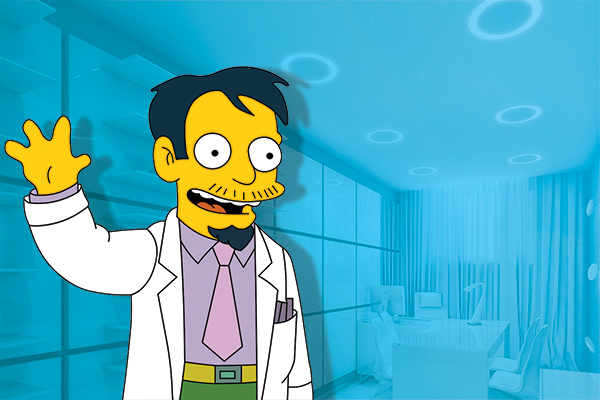Hi Dr. Nick | Issue 25
Just Look at All the Fucks I Give
Put your hand in your front right pocket and have a good ol’ feel. That phone you’ve got in your hand, and its reliance on the ore Coltan, is responsible for the conflict in the Congo that the World Health Organisation conservatively estimates kills over 1,000 people a day.
But that’s okay, because we could easily all die in a nuclear war before we would be able to fix that issue. Research from 2007 shows that a war involving 100 small nuclear weapons would basically wipe out a third of the world’s population within two years, leaving the rest of us to starve to death or suffer the long-term effects of global irradiation. (For the record, 100 weapons of that size constitute less than 0.1 per cent of the total amount of explosive nuclear weaponry in the world and around 5.5 per cent of the number that are able to be launched with less than 10 minute’s warning, and are substantially less than the standard load on a regular Trident submarine used by the United States.)
And hey, if the world doesn’t end in fire, it can always end in ice (either a reference to Robert Frost or Game of Thrones, depending on your literary background and fondness for titties on TV). Climate change is set to wipe humanity off the face of the earth if we don’t do something to radically alter the tracks we’re currently on.
Show of hands (you can take them out of your pockets now, guys): who’s bored already? 250 words in and the column is already preachy, doomsday-y and “same old, same old”-y. We’re literally talking about the end of humanity, and it’s simply not exciting anymore. This is what I call “repeated exposure, don’t give a fuck anymore” (REDGAFA) Syndrome. Perhaps it has a real medical name, but this is my twenty-fifth column and I don’t give a fuck anymore.
REDGAFA Syndrome plays an important role in medicine. It’s the reason we don’t actually care how small, curved or awkwardly narrow your junk is when you come to clinic; it’s the reason why we can keep functioning when a 14-year-old tries to kill herself; and it’s the reason we can seem so heartless.
I watched my Granddad have a heart attack one Christmas. It was terrifying, and I felt utterly, devastatingly powerless. You tell me that there’s a “?MI” (suspected myocardial infarction) in Bed 4, however, and I will casually wander in to say hi and run through the standard questions while hoping I make it to lunch. It’s not that I don’t empathise with the pain and worry; it’s just that heart attacks are bread and butter on the ward. To many people (including my younger self), such an attitude seems unbelievably callous, but the diagnosis is nothing special.
What is special is the patient. No matter how many patients you see and no matter how many textbooks you read or lab tests you order, the patient is always unique. Their perspective, their history and their ideas, fears and expectations about what it means to be sick are all unique. REDGAFA doesn’t apply to a patient’s life, just their symptoms.
Life lesson: REDGAFA’s not unique to doctors. You’ve probably already REDGAFA’d things like breakups or drunkenly pissing the bed. As you grow older, you’ll be repeatedly exposed to things like suicide, cancer, and death of family and friends, and while they may seem horrible now, they are incredibly common in society. Odds are, you’ll begin to develop REDGAFA towards them throughout your life. Just because medics get to skip ahead in the “book of cynicism” doesn’t mean we aren’t all reading it. Keep REDGAFA at bay by individualising situations you feel indifferent to – find a way to connect to something specific to that event and run with it.






